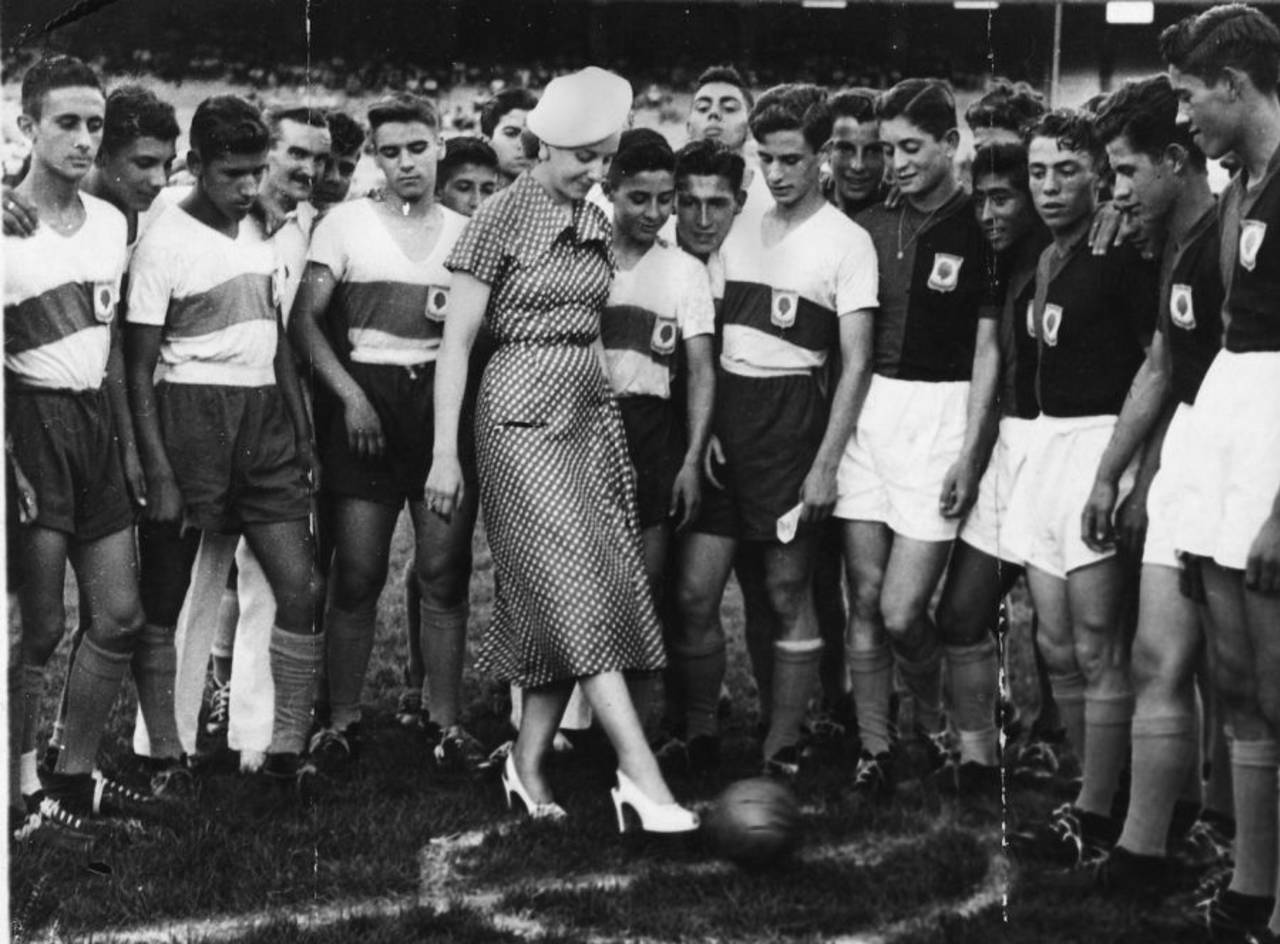Asked to name a current international cricketer whose career began in the previous century, many might pick, say, Chris Gayle or Shoaib Malik. Perhaps only the most committed of Associate hipsters would suggest 43-year-old Alejandro Ferguson, who was in action for Argentina at last month's T20 World Cup Americas regional qualifier, having first turned out for his country - aged 15 - in
the 1994 ICC Trophy.
This is understandable. For a start, Argentina is not one of those rare cricketing strongholds beyond the former Commonwealth - they lost to Bermuda, Canada, USA and Bahamas at the
ICC qualifier in Antigua - neither is there an overt cultural appeal to the game in the country. Argentina's rugby players are an established force internationally, but the overwhelming sporting context is provided by names such as Messi or Maradona. Throughout Latin America, it is football that stirs passions. Tell people you are planning to write a book about cricket on the continent and you might expect to be met with some scepticism.
None of which deterred Timothy Abraham and James Coyne when they set out with backpacks, bat and ball to visit 18 countries (plus one
overseas department of France) and explore cricket's history in Central and South America. The result,
Evita Burned Down Our Pavilion, is a fascinating read, full of meticulously researched and lovingly told tales - and which, as suggested in Tim Rice's foreword, "fills a gap in the great game's vast literary tradition". No mean feat, that.
Rice, the lyricist and cricket nut, of course wrote Evita - though sadly there is not a scene in the musical where Madonna takes a can of petrol and some matches round the back of the changing rooms of the Buenos Aires Cricket Club ground in Palermo. But it is true (or at least alleged) that the rise of Peronism marked the turning of the tide against more than 100 years of cricket in Argentina.
It began, of course, with the British. Cricket had been played in Argentina and Uruguay since the first half of the 19th century, as the empire spread its tendrils throughout South America, and was the game of choice for the first official sporting contest between the two neighbours in 1868 (nine years before what is now recognised as the first Test between England and Australia).
The Buenos Aires Cricket Club was already established by then, their ill-fated pavilion built in 1865, the same year in which a group of ladies formed their own club in nearby Belgrano - giving Argentina "a claim to the first women's cricket club anywhere in the world". Also around this time, football established its first toehold in South America, with the founding of the BAFC. But commercial links, particularly through the meat industry and British involvement with Argentina's railways, helped cricket sustain its niche.
Juan Peron's election as president in the aftermath of World War II threatened the cosy Anglo-Argentine sphere in which the game existed, however. Peron was intent on nationalising the railways, while his wife, Eva, had established a foundation to help support the poor - a request for donations and to use the BACC ground for a charitable event was declined by the club's committee. Diplomatic tensions on Evita's tour of Europe in 1947 then led her to skip a planned visit to Britain; five days after it was announced that her trip to London was off, "the pavilion of the first cricket club in South America lay in smouldering ruins".
Nevertheless, there are still plenty of good yarns to be told about cricket in "the Argentine". Lord Hawke played his last first-class game there on an MCC tour in 1911-12, while Pelham Warner led a similar expedition in 1926-27. On that tour, MCC came up against
Clement Gibson, born in Argentina but educated at Eton, where his performances in 1917 led to him being named one of
Wisden's Five Cricketers of the Year (schoolboys were selected with the county game in abeyance due to the war). Gibson later declined an invitation to be part of the 1924-25 Ashes tour, in order to look after business matters at home.
Players such as
Herbert Dorning - the "WG Grace of Argentine cricket" - and
Dennet Ayling, whose first-class records you will find on ESPNcricinfo but little more, are brought to life. Cricket was an established presence in the country, with strong links to the game in England, a competitive league system and an annual classic in the shape of the North vs South fixture. Now that legacy is largely confined to well-appointed enclaves such as Belgrano AC and the Hurlingham Club - named after its more famous counterpart in London.
Every chapter of
Evita Burned Down Our Pavilion contains precious nuggets. Discover the story of Claude Butlin, Mexico's equivalent of CB Fry; trace the links between the great West Indies batter George Headley and his birthplace in Panama; find out how the game flourished in Chile, from the nitrate mining communities of the Atacama Desert to the meatpacking district of Punta Arenas, 2500 miles south. And while you may already know which England captain was born in Peru, were you aware of the identity of the
only first-class cricketer to have come from Venezuela?
Nor is it all ancient history, as shown by the
story of Poços de Caldas, and Cricket Brasil's decision to centrally contract the players of its women's national team. As Abraham and Coyne write, while the British were often guilty of insularity, cricket's foundations in Latin America remain strong. "It has taken a while, but the baton is being passed on." Perhaps the next Lionel Messi will be dealing in hat-tricks of a different kind.
Evita Burned Down Our Pavilion
by Timothy Abraham and James Coyne
Constable
438 pages, £20

